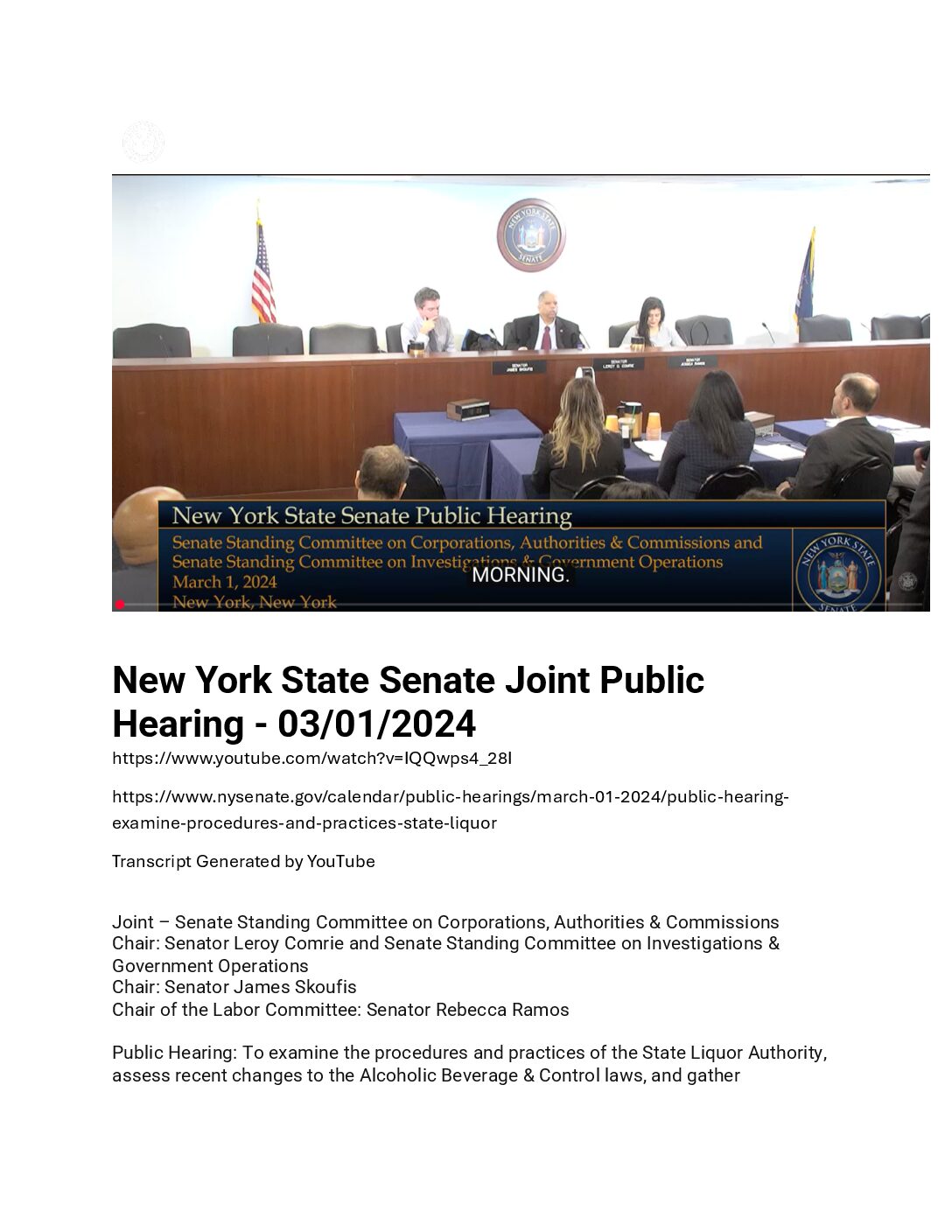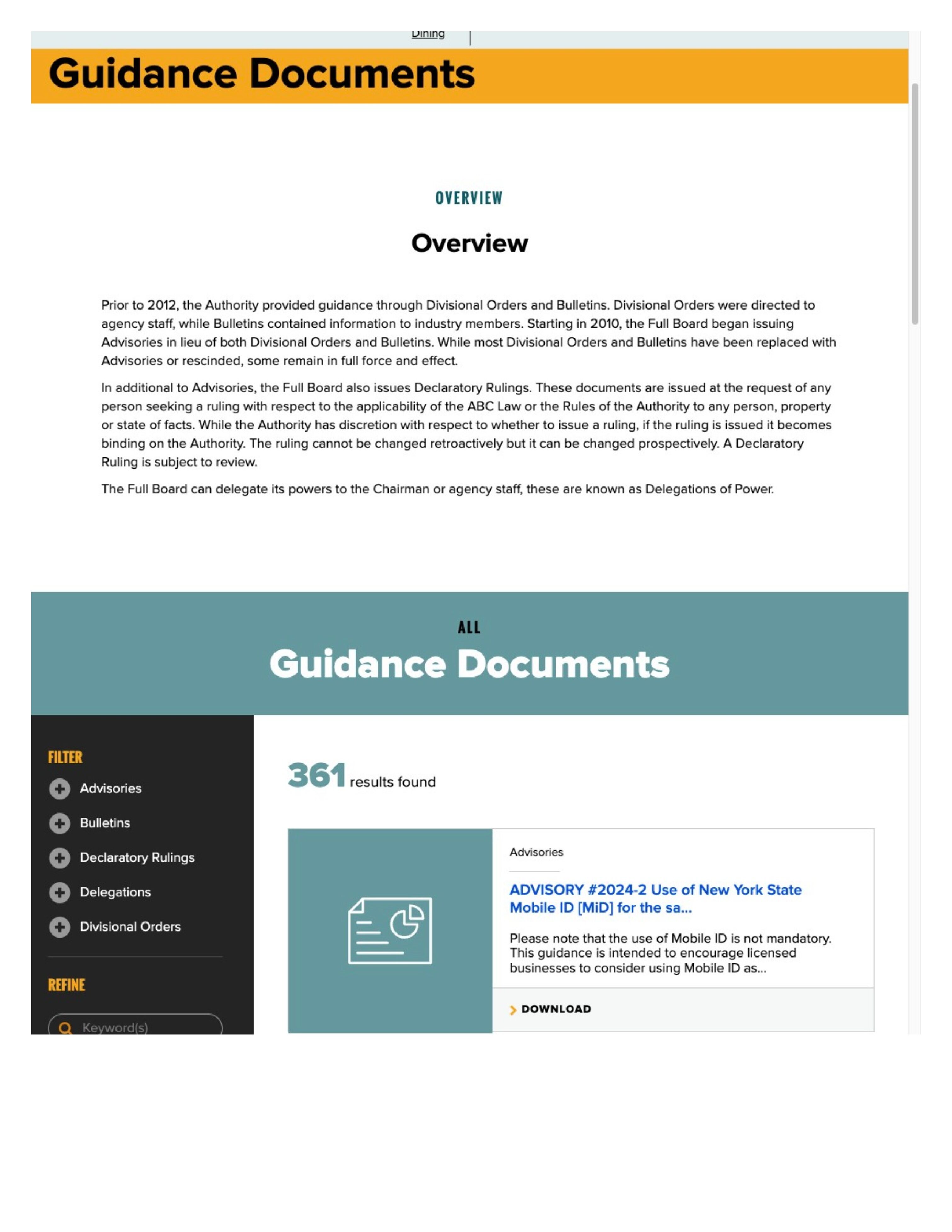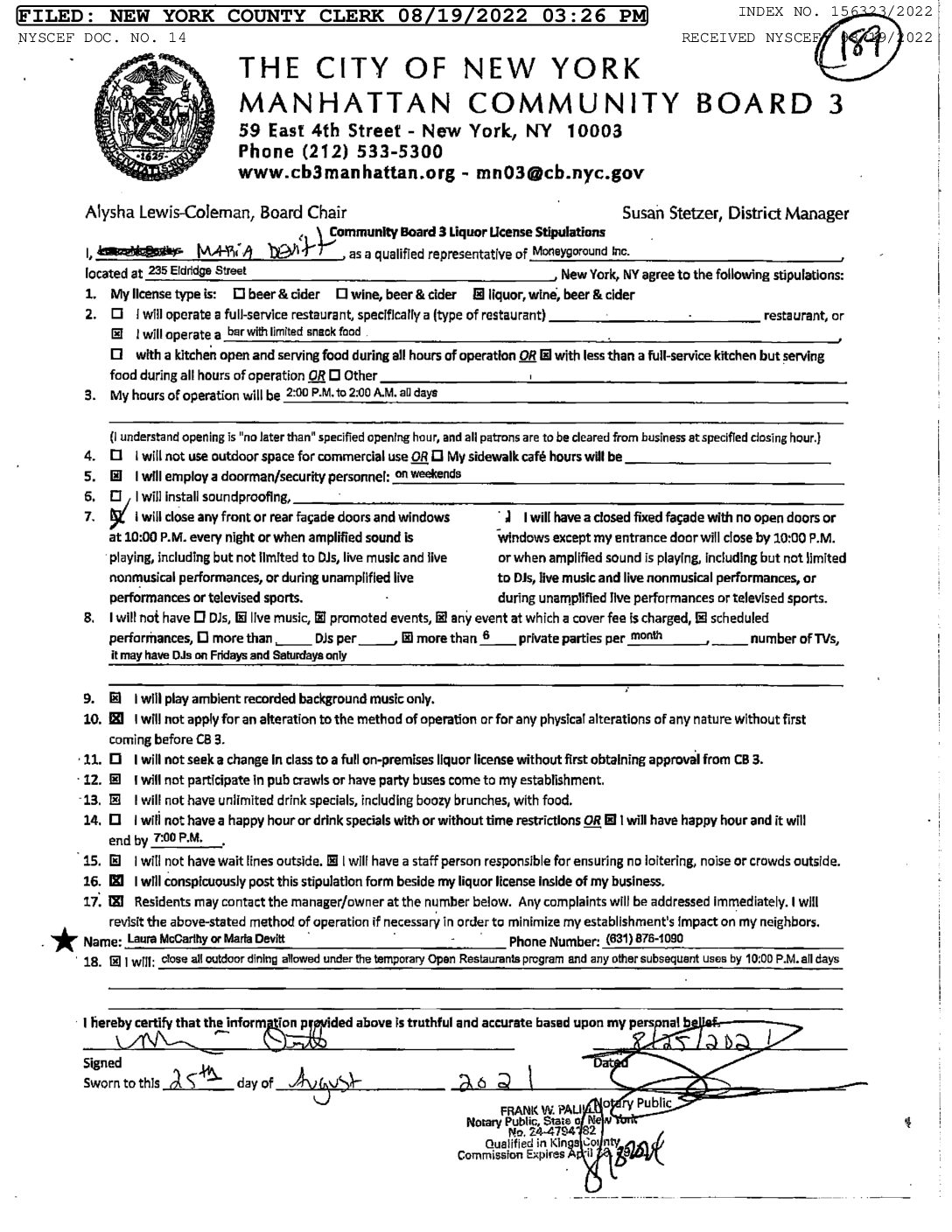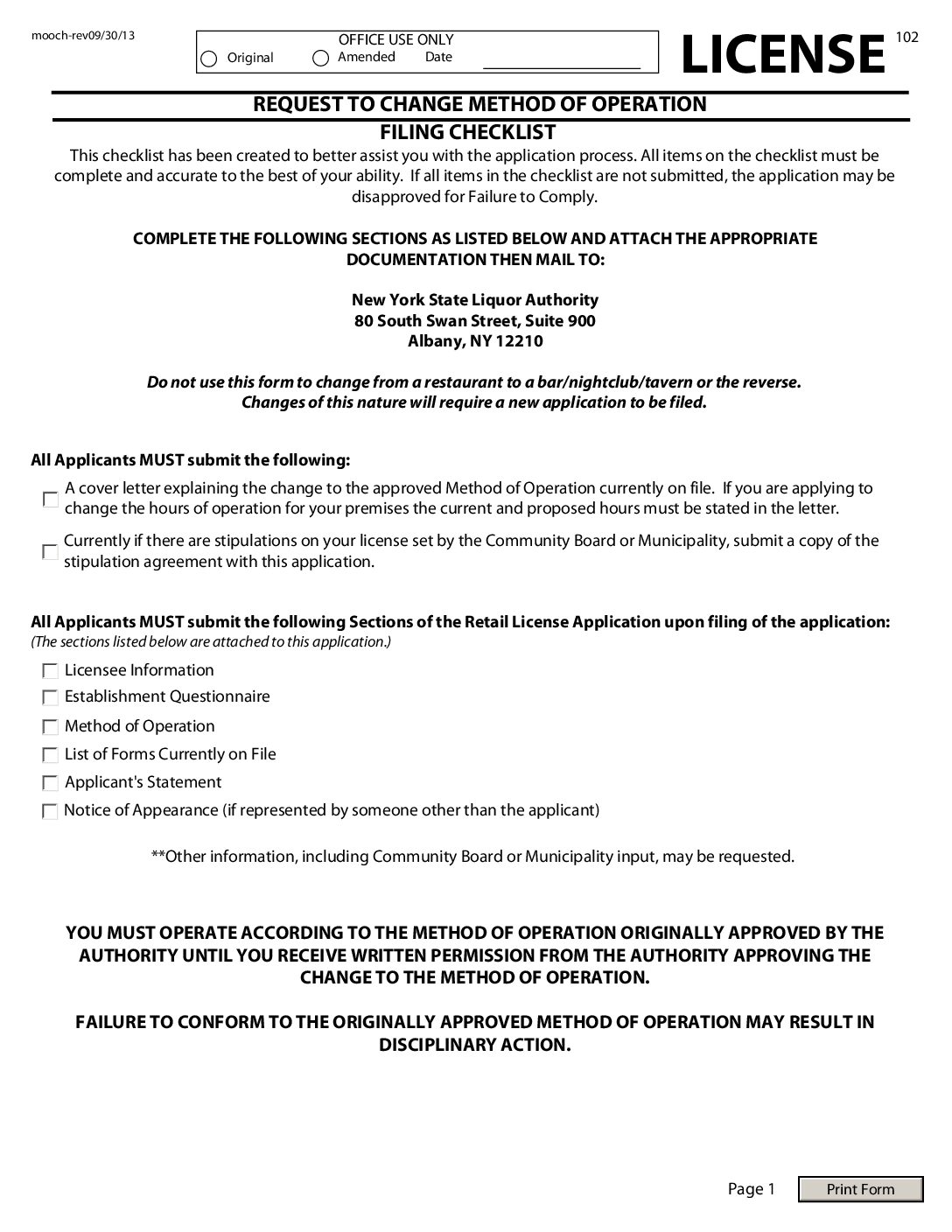Letters 2022-2025 to SLA Chairs Bradley and Chan
Document Category: Latest Posts
Alcoholic Beverage Control Law Section 64
New York Consolidated Laws, Alcoholic Beverage Control Law – ABC § 64. License to sell liquor at retail for consumption on the premises with 500 Foot Law.
500 Foot Law Alcoholic Beverage Control Law Section 64
The 500 Foot Law ABC § 64 in practice creates barriers to obtaining an on-Premises license without an optional time consuming hearing by the SLA Board, absent Community Board Approval.
§ 64-a of Alcoholic Beverage Control Law – Factors to Consider in Granting Liquor License
Factors that may be considered by SLA in granting liquor licenses do not include whether there will be patron dancing, live music, or amplified music
License Applicants Agree to Community Board Demands to Avoid Months of Delay from SLA- NYT
License Applicants May Submit to Unreasonable Community Board Demands to Avoid Months of Delay in Obtaining Licenses:
March 1, 2024 New York Senate Standing Comittees on Corporations, Authorities & Commissions and Investigations & Government Operations
Public Hearing March 1, 2024: To examine the procedures and practices of the State Liquor Authority, assess recent changes to the Alcoholic Beverage & Control laws, and gather recommendations to improve the efficiency, responsiveness and transparency of the SLA to businesses across the state.
SLA Rule-Making – Regulations at 9-NYCEE and By Advisories
In our view, the acceptable practice is for adminstrative agencies to make rules in the form of a rule making procedure with prior notice and for rules to be promulgated in a regular organized manner as the agencies rules and procedures. The SLA departs from this method and rather seems to make rules in the form of advisories which are irregularly indexed.
Community Board Stipulation Require Approval to File Request of Modify Method of Operation
Community Board Stipulation often provide provisions such as “I will not apply for an alteration to the method of operation or for any physical alterations of any nature without first coming before CB 3”
Request to Change Method of Operation Form Revised January 2025
In 2025 the SLA modified its form to request a change in the Method of Operations required in allowing the SLA to approve dancing and live music in locations now available for dancing by the NYC zoning change, and seemingly approving surrendering its authority to Community Board stipulations and signalling approving conditions which violate the First Amendment as to Live Music.
Analysis of SLA License Database as of March 15, 2023 as updated.
SLA data shows that Live Music is explicitly or implicitly disallowed in over 9000 of the 11,000 NYC licenses; only 278 licenses allow patron dancing.






